Written by Scott Wilson

New York State famously invests gobs of money in social services. According to the Urban Institute, the state’s single largest per capita spending area is public welfare. It ranks fourth in the nation in per capita welfare spending, and serves more than half a million people directly, to say nothing of those who lean on one-time or intermittent services of all kinds.
It’s an amazingly effective system, the safety net of last resort for millions of New Yorkers. And it’s a system that is fueled as much by people as it is by money.
So there’s always more demand here for professionals who can display the unique combination of knowledge, expertise, and adaptability it takes to tackle the biggest problems facing individuals and society.
We know them as social workers.
According to Bureau of Labor Statistics data from 2023, there are right around 61,500 social workers on the job in New York State.
Ask any one of them, and they’ll tell you it’s not nearly enough.
What Kinds of Roles Do Social Workers Fill in New York?
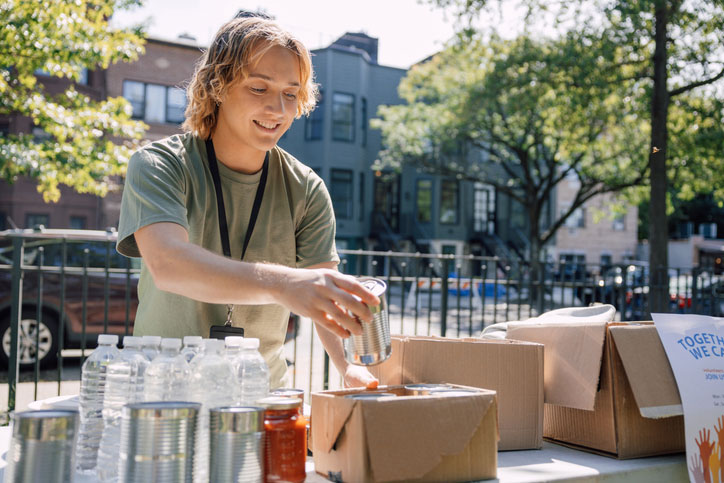
New York social workers are heroes, there’s no doubt about that. It’s right there in the official licensing requirements from the state: be of good moral character.
That means coming at that job with a lot of heart, resourcefulness, and a never-say-die attitude.
A big, multicultural place like New York comes with multidimensional social issues. No doubt, New York is one of the most fascinating places on the planet to become a social worker. No two days on the job are the same.
Licensed social workers here have the tools and authority under state law to act as empowered problem-solvers. On the job, that means:
- Assessing client needs
- Developing treatment plans and identifying resources and assistance options
- Delivering direct counseling
- Resolving day-to-day issues for clients and barriers to treatment
- Managing cases and evaluating progress
- Rallying the community to address systemic and long-term social problems
That’s a pretty generic scope of duties, though. Down at the street level, while every social worker may be performing some combination of those tasks, the way they actually get the job done can vary greatly.
Most Social Workers Find Their Place in Specialized Areas of Practice
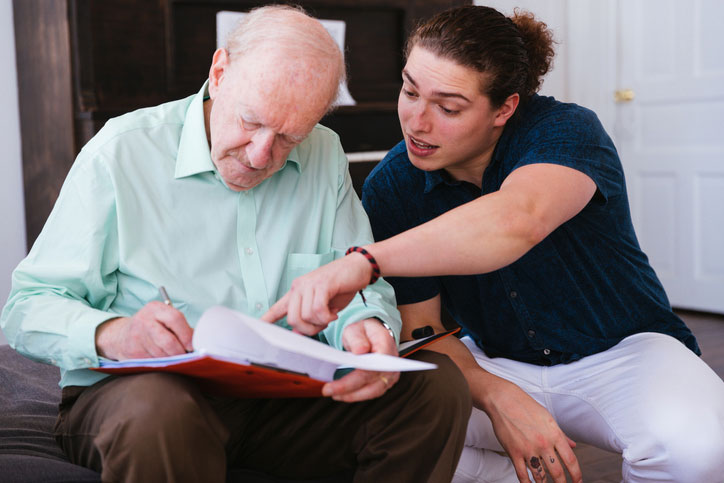
Social workers step in to help at the worst moments for people in every demographic at any phase of life. As far as motivation and legal authority, all you need is to care a lot and have a license. But as far as expertise, you may need to develop very different skills to be an effective social worker in all the various specializations they can work in.
These are among the most popular in New York…
Like the rest of the country, the state of New York will be dealing with a significant increase in the elderly population in the coming years… people over 65 in the state are on pace to double in the three decades leading up to 2030, while those over 85 will balloon by more than 120 percent. These are individuals with increasing healthcare, economic, and mental health challenges that only social workers can help them address. According to the New York State Office for the Aging, the number of people over 60 with functional impairments will increase by 20 percent by 2025… each needing assistance from trained social workers.
Of course, health issues can come at anyone in any stage of life. Social workers also help individuals in hospitals, at home, or even on the streets in dealing with the increasingly complex and expensive American healthcare system. Working for healthcare providers or non-profits, social workers in this specialization are experts in navigating insurance and assistance programs. They also work to address whole-person and environmental issues that often impede recovery from medical issues.
One of the most vulnerable populations is comprised of those too young to fend for themselves—kids. Fortunately, they are also routinely concentrated in places where social workers can easily watch over and evaluate them—schools. This practice area is so highly specialized that most states have separate licensing laws to cover it, including in New York. But child welfare extends beyond schools, including adoption and fostering services, early healthcare and well child services, and investigations into neglect and abuse.
The American opioid crisis has hit New York full on. After an encouraging decline beginning in 2017, the COVID-19 pandemic kicked that progress to the curb. According to the New York Office of Budget Policy and Analysis, opioid overdose rates in New York spiked by 44 percent in 2020, blowing out the national average by more than 5 percent. Minority groups were hit hardest, and substance abuse social workers are on the front lines. Specialists in this field are rushing to get naloxone to places that need it and arranging prevention and treatment programs to head off the deadly scourge of fentanyl.
In a sense, how you become a social worker may depend on just what kind of social worker you want to become. If you already have a clear idea of in mind of how you want to specialize, it’s always smart to line up internships and other kinds of supervised experience that align with your vision.
How Do You Become a Social Worker in New York? – 5 Steps To LMSW and LCSW Licensure

The path to any type of social work career runs through the licensing process administered by the New York State Education Department Office of the Professions. Why is all this run by the State Education Department when it’s not just for school social workers? Because that’s just how New York does it.
There are two stages to licensure for New York State social workers:
- Licensed Master Social Worker (LMSW) - Entry-level licensure for master’s graduates just entering social work practice. LMSWs practice with restrictions on some clinical social work services unless supervised, but are able to fulfill most other social worker roles.
- Licensed Clinical Social Worker (LCSW) - Full clinical licensure allowing independent practice and diagnosis of clients, including offering psychotherapy and similar services.
It’s not absolutely required that you move up from LMSW to LCSW, so if your goals don’t involve providing clinical services, you’re free to stay at that level of license. On the other hand, it’s not possible to become an LCSW without building supervised experience as an LMSW first, so every clinical social worker in the state will hold the LMSW license at some point.
Getting to the LMSW is the same for everyone. And it starts with a college education
Step 1. Earn a Bachelor’s Degree in Social Work (BSW)
(If you already have a BSW or a bachelor’s in another field, skip to step 2.)
Ultimately, you’re going to need a master’s degree in social work (MSW) to get licensed in New York state. It’s right in the title: Licensed Master Social Worker.
But you are going to need to earn a four-year bachelor’s degree before getting started on an MSW.
If you don’t already have a four-year degree, then a Bachelor of Social Work (BSW) is what you’re after. These are an easy choice for anyone looking to make the long haul into either licensed or unlicensed social work practice.
A BSW Streamlines Your Career Prep and Saves You Money
With a BSW under your belt, you’ll enter a one-year MSW program as an advanced standing student. That cuts a full year off the total time it takes to become licensed. That saves you a year’s worth of expensive graduate tuition and gets you into the field earning a living faster.
Taking a shortcut in your career prep doesn’t mean cutting any corners on the education you get. The final year of your BSW delivers the exact curriculum as the first year of a traditional two-year MSW. Transitioning from a BSW to an advanced-standing MSW simply means avoids having to take the same classes over again. You get it all in less time.
At Every Level, Specialty Accreditation for Social Work Programs Is a Must Have
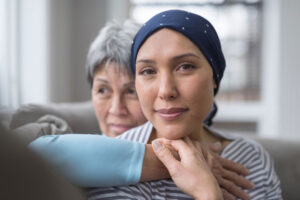 Social work is a specialized field of study, and it requires specialty accreditation for degree programs leading to licensure. This is less important at the bachelor’s degree level, but still valuable; at the Master of Social Work level, it’s a key feature of the program.
Social work is a specialized field of study, and it requires specialty accreditation for degree programs leading to licensure. This is less important at the bachelor’s degree level, but still valuable; at the Master of Social Work level, it’s a key feature of the program.
Accreditation in social work comes from the Council on Social Work Education’s Board for Accreditation, a specialty accreditor recognized by the Council for Higher Education Accreditation.
Their extensive peer-review process brings in an extra level of scrutiny from the professional side of the field to assure both students and credentialing agencies that curriculum, instructors, field placements, and every feature of social work training meets the current standards of the field.
Without accreditation, you may have a tough time getting your MSW accepted for licensure. The NYSE ED Office of the Professions requires that you earn it from a school that is either registered with the Department or CSWE accredited. While there is a process to submit coursework from non-accredited schools for approval, there’s no guarantee that it will be accepted.
A Well-Rounded Curriculum and Internship Provide a Global Perspective and Focused Expertise
A BSW isn’t just an exercise in checking a box on your career path. With four years and 120 semester credits worth of coursework, it provides a rock-solid foundation for a meaningful career in social worker.
Your BSW provides the basis of knowledge you will need in areas like:
- Human Behavior and Psychology
- History of Social Welfare in the United States
- Contemporary Views in Social Justice
- Social Services and Counseling
Most BSW degrees also include some supervised field experience that will put you out in the field in your own community in a variety of social service organizations. This is a valuable first taste of what it’s like to really work in the field. It’s also a chance to explore different types of social work if you are undecided on an area to specialize in.
Finally, a bachelor’s degree of any kind comes with valuable coursework that will hone your skills in critical thinking, communication, and problem solving. It will give you a historical and cultural perspective that will inform your understanding of how to address the social ills we face in New York today.
A Non-Social Work Bachelor’s Degree Can Offer a Foundation for Specialized Practice Areas
 Although a BSW is the obvious choice when preparing for an MSW for all the reasons mentioned above, it’s not a requirement. Many social workers come to the field as career changers with undergraduate majors in diverse fields. And many find the experience they get to be just as valuable as a BSW.
Although a BSW is the obvious choice when preparing for an MSW for all the reasons mentioned above, it’s not a requirement. Many social workers come to the field as career changers with undergraduate majors in diverse fields. And many find the experience they get to be just as valuable as a BSW.
Degree programs in areas as varied as human services, sociology, psychology, political science, or even pre-law can give you a unique set of tools to pursue your goals as a social worker.
Pursuing a bachelor’s in a related field broadens your skills and may give you some unique advantages when it comes to certain specializations in social work. For example, undergraduate coursework in law may boost your ability to sort through New York Department of Social Services regulations regarding welfare allocations, or make you a whizz at filing immigration paperwork with the U.S. Citizenship and Immigration Services department.
When you get down into the weeds with Chapter II, Volume A, Subchapter B, Article 1, Part 349, Section 349.3 of the New York State Public Assistance Regulations, you may be glad spent more time studying law than counseling.
With a bachelor’s degree behind you, it’s entirely possible to find work within the broader field of social services, either upstate or in any of the five boroughs. But if you’re trying to get to a place where you’re able to have the biggest impact, then an MSW and a social work license is your future.
Step 2. Earn a Master of Social Work (MSW) Degree Through a CSWE-Accredited Program

The educational standard for licensed social workers in New York is the same as it everywhere in the country: A Master of Social Work (MSW).
If you hold an undergraduate degree in any field other than social work, then you have a traditional two-year graduate student experience ahead of you. But if you hold a BSW, you’ll be on the fast-track to earning your MSW and becoming licensed.
With a BSW Behind You, You’re Ready for an Advanced-Standing, One-Year MSW
While traditional MSW programs take two years and about 60 credits to complete, with a BSW, you’re able to shave that down to a year or even less.
Advanced-standing MSW programs are designed as a sort of completion program, giving you credit for a full year of the coursework you took in your BSW program. Those credits are applied toward the master’s-level courses typically covered in the first year of a traditional two-year master’s.
With the Advanced Coursework and Extensive Experience You Get with an MSW, You’ll Be Career-Ready
Whether you’re in for the full two-year haul or the streamlined one-year path, your MSW program will put you in the deep-end of the pool.
You’ll be learning from the legends of New York’s social services community, professors with years of experience behind them who have seen it all and done it all. These are folks who were out there on these streets working for the greater good through some of New York’s most tumultuous years. They’ve seen the socio-economic changes, the crime spikes, and the gentrification that has changed the face of many of New York’s neighborhoods. They’ll be ready to impart a lot of hard-won knowledge to you, and it’s your job to be ready to take it in.
Your advanced coursework will deliver a serious, career-focused education that goes beyond theory, preparing you to apply knowledge out in the real world in areas that include:
- Social justice, diversity, and at-risk populations
- Social environment and human behavior
- Social welfare policy and human services systems
- Advanced practice in social work
- Research and investigation
- The values and ethical standards of social work
Additionally, degree programs accepted for licensure in New York will place you in a practicum of at least 900 clock hours in the field. Whether at Mount Sinai or CAMBA Family Shelters in Brooklyn or the NY Vet Center in Manhattan’s Chelsea neighborhood, your local college has the community connections to set you up with diverse service providers serving equally diverse populations. You might find you’re able to complete most of the hours within a few subway stops from home.
Why Stop at Just One Master’s Degree on Your Way to a Career as a Social Worker?
 Social work is interdisciplinary by nature. You’ve already seen how it can cross over with law, politics, healthcare, and other human services. Each of those intersections is an opportunity for specialization.
Social work is interdisciplinary by nature. You’ve already seen how it can cross over with law, politics, healthcare, and other human services. Each of those intersections is an opportunity for specialization.
New Yorkers know how to do what it takes to get ahead. So dual master’s tracks that stack another degree on top of an MSW are surprisingly common here.
Many of the major MSW schools in New York offer duel degree options that give you the chance to get a master’s education in social work together with a second graduate degree, all in a single accelerated program. MSW duel degree tracks often include stacking one of these degrees:
- Master of Public Health (MPH)
- Juris Doctor, or Law (JD)
- Medical Humanities or Bioethics
- Master of Business Administration (MBA)
- Master of City Planning (MCP)
- Master of Public Administration (MPA)
- Criminology
- Master of Education (MEd)
Each of these gives you additional skills and knowledge you can use to accelerate your career toward career goals that intersect with social work, which could include everything from school administration to law. And putting two degrees together in one accelerated program offers some cost savings and a reduced timeframe, getting you out into the workforce faster and better equipped than many of your fellow students.
Step 3. Get Additional Specialist Training in Identifying Child Neglect and Abuse
New York has another important educational requirement that isn’t integrated with MSW studies. For LMSW or LCSW licensing, you will also need to complete a short course of study in identifying child abuse and understanding the legal requirements for reporting such evidence.
This is an important step in your training. As a social worker, you’ll be a mandated reporter with the legal and ethical obligation to report neglect and maltreatment of children according to New York state code.
Social Work With the Most Vulnerable Population Requires the Most Training… but Offers the Greatest Rewards
 Social services stepped in and put Znaya into foster care when she was only 8 years old when it was found that her mother and boyfriend were severely verbally and physically abusive.
Social services stepped in and put Znaya into foster care when she was only 8 years old when it was found that her mother and boyfriend were severely verbally and physically abusive.
But as every child welfare social worker knows, just getting a kid out of a bad situation doesn’t guarantee a great outcome.
Znaya ping-ponged around the system, as often happens. Placed with her half-sister’s father’s family for a time, she returned to her mother’s care at age 12 with promises of change and a better life.
But the promises were broken so she ran away… and ended up right back in the foster care system. Struggling with various placements, her case manager recognized that Znaya’s best friend’s family was both willing and able to take her in. With an official blessing from the state and all the paperwork taken care of, Znaya finally had a stable environment in which to finish high school… and start college.
In a big and bureaucratic system like New York City’s ACS (Administration for Children’s Services) it’s easy to come across stories of kids who endure a lot of drama and heartache in the process. But Znaya’s story is one that serves as a reminder that it just takes one social worker willing to listen, willing to make the pieces fit, to change a whole life for the better.
It’s also a short one, however. Classes are available online or in person from a wide range of both public and private providers. You’ll have to pass a short test after completing the training. You’ll need to get a Certificate of Completion from the training organization which will be submitted with your official application in step #4.
It’s possible to file for an exemption from this requirement, if you can attest to the fact that you will have no professional contact with minors in the course of your practice… for example, as a geriatric social work specialist.
NYSED has a convenient online list of acceptable training providers for this step.
Step 4. Apply for the LMSW and Pass the ASWB Masters Exam
(Stop here if the LMSW is your end-goal!)
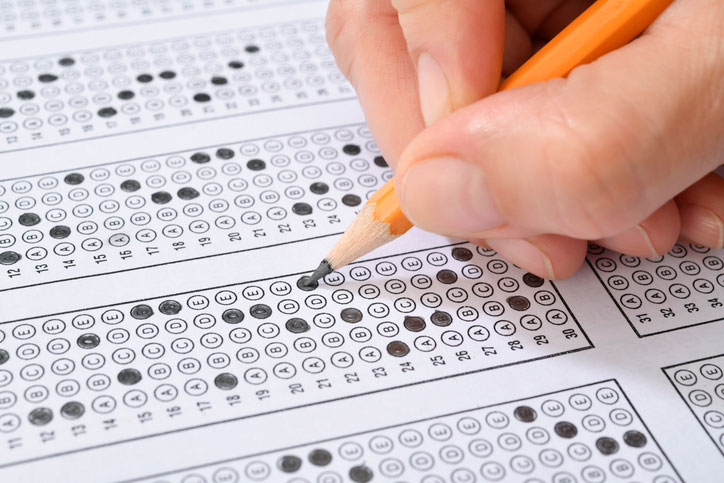
With all your education out of the way, it’s time to get your career in gear: your next step requires submitting an official application for licensure and getting signed up to pass the required licensing exam.
If you’re stopping off at the LMSW level of licensing, you will be facing off against the one and only test of your professional competency: the Masters examination conducted by the Association of Social Work Boards (ASWB).
It’s a serious exam for qualified candidates only, and you can’t just walk in and take it. ASWB requires that you first apply with the Office of the Professions for approval.
This in itself is a set of mini-steps, each of which are a breeze for a highly-educated candidate such as yourself:
- File the necessary application for licensure form and pay the associated fee
- Contact the school where you earned your MSW to have them verify directly with NYSED that you completed the program satisfactorily
- Receive approval from NYSED for your application
- Register directly with ASWB to complete the required exam
That first stage will be the Masters exam. Over the course of 170 multiple choice questions, you’ll need to demonstrate your mastery of knowledge, skills, and abilities in master’s-level social work practice. The test covers areas such as:
- Human Growth and Development
- Diversity and Social and Economic Justice
- Assessment and Intervention Planning
- Intervention Techniques for Clients and Client Systems
- Professional Relationships, Values, and Ethics
You get four hours to complete the multiple choice test.
If you are going on to earn an LCSW, the LMSW is just phase one of your licensing odyssey.
Step 5. Get a Job and Gain 2,000 Hours of Experience to Qualify for the LCSW License
(For clinical social work candidates only!)
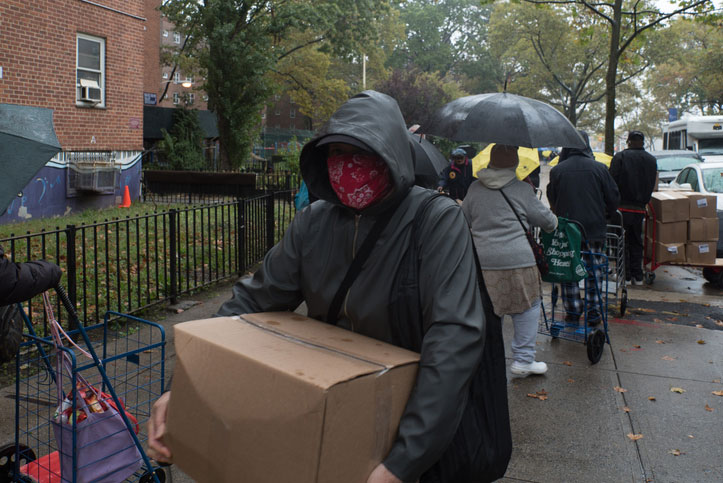
The LMSW is open to anyone who has completed the basic level of experiential training that comes with an MSW degree, meaning you can become licensed with only the 900 hours or so you got while earning your master’s.
The LCSW is different. After earning your LMSW, you have to accrue an additional 36 months of supervised experience, including 2,000 direct client contact hours in diagnosis, psychotherapy, and assessment-based planning treatment. Employers gladly provide qualified supervisors to help document those hours toward LCSW licensure.
Some employers specifically offer social work field placement opportunities for LMSW holders seeking to build their clinical experience toward LCSW licensing, paying a stipend rather than a full salary.
Perhaps surprisingly, most social work positions in the Empire State will accept applicants at either level of licensure. This speaks to the serious need for social workers and the shortage of qualified candidates throughout the state.
But more than that, it’s the standard way that employers participate in the training and vetting process for LCSW candidates. This period of supervised experience is built-in to the licensing process in New York, so employers see it as part of their professional duty to foster social workers throughout the process and help candidates qualify for the LCSW. In the end, employers end up with qualified LCSWs on the payroll that they know have the right skills for the job, along with a deep familiarity with the programs and clients the employer serves.
In such a big and diverse state, you shouldn’t have trouble finding positions that allow you to practice within your specialization. Or, as an LMSW, you may choose to sample various types of practice to see where you want to settle in as an LCSW. You may even find a niche that doesn’t necessarily require you to advance your license level. It’s perfectly acceptable to retain the LMSW if you don’t intend to perform services like clinical assessment and counseling.
Step 6. Apply for the LCSW and Take the ASWB Clinical Exam to Become Clinically Qualified in New York State
(For clinical social work candidates only!)

To make the jump up to LCSW, you’ll have to repeat the licensing application process described above after completing the 2,000-hour experience requirement. Then you’ll also have to pass ASWB’s Clinical examination.
The Clinical exam covers much of the same ground as the Masters exam. It does so at a more advanced level and with different emphasis… for example, more of the test is devoted to assessment, diagnosis, and treatment planning, while values and ethics doesn’t get as much coverage.
There’s also an additional section, covering Psychotherapy, Clinical Interventions, and Case Management. These are skills that Masters-level applicants aren’t expected to have developed yet.
The scoring matrix and passing score can vary from test to test as a way to ensure exam integrity. But generally, you’ll need to nail around 100 questions to pass.
There’s good news, though: according to ASWB pass rate data from 2022, almost 70 percent of first-time Masters exam candidates pass on their first try, and more than three-quarters of Clinical applicants make the grade. The advanced education and practical experience makes a clear difference in competency.
Keep up With Continuing Education and Earn Specialist Certification in Your Area of Social Work Practice
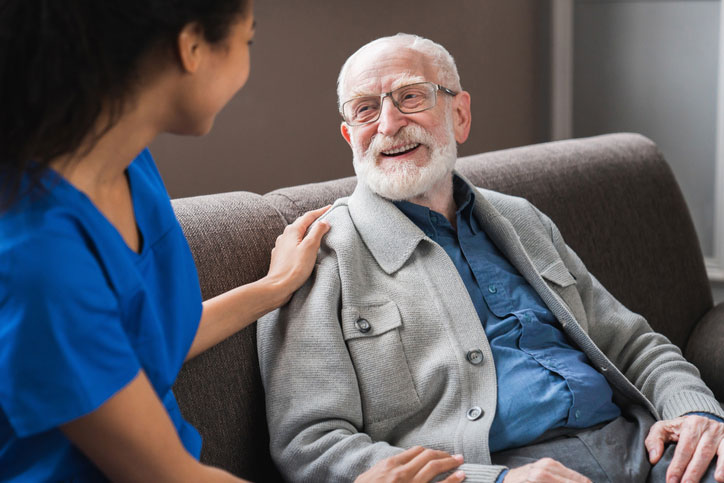
Society, and especially New York society, is always evolving. And in New York, that change comes fast. Social workers here have plenty to keep up on with new challenges, solutions, and needs arising every year.
It’s natural for people who are so closely connected to the most vulnerable populations to want to keep up with changes in resources, threats, and policy changes that impact them. But it’s also very easy to get sucked in to the day-to-day action of social work. You may have trouble making the time to put your head up long enough to see what’s coming down the turnpike.
So NYSED bakes in some requirements to help social workers at every license level stay up to date through ongoing continuing education requirements.
Both LMSWs and LCSWs in New York will need 36 hours of continuing education from approved providers within the three-year registration period in order to maintain their license.
An exception to the ongoing CE requirements is for LCSWs in their first three-year registration period—since you had to comply with the standard as an LMSW while getting your experience hours, the condition is waived for your first LCSW renewal.
While the most straightforward way to meet these requirements is simply to take classes from companies on the NYSED approved provider list, there are actually many common professional improvement activities that can fulfill the requirements. These include:
- Preparing and teaching a continuing ed course yourself
- Teaching at a college or therapy institution
- Making a technical presentation at a professional conference
- Engaging in a self-study program
- Writing and publishing an article in a peer-reviewed journal
- Writing and publishing a book related to the practice of social work
The NYSED social work licensing FAQ has a convenient grid to help you translate what each of those activities are worth in terms of hours to count toward the requirement.
Consider Becoming Nationally Certified in Your Specialization Shows Your Commitment and Expertise
Continuing education goes toward your own improvement as a social worker and advocate for your clients. But there are also steps you can take to showcase your progress and special capabilities to both clients and employers as you develop your expertise.
That comes through optional professional social work certifications. NASW, the National Association of Social Workers, is the go-to standard in the field.
They provide a much-needed set of additional assessments and qualifications that help social workers in various niche practice areas stand out for their special expertise. They have two general credentials that any experienced and educated social worker may be eligible for:
- Academy of Certified Social Workers (ACSW)
- Diplomate in Clinical Social Work (DCSW)
Each holds you to higher standards in education, practice, and ethics than the baseline for licensure. That’s a plus for clients and employers alike, no matter what your specialty.
But NASW also has a range of different certifications in various specialty areas that go further in exploring your expertise and commitment to those types of practice:
- Addictions
- Case Management
- Clinical Practice
- Education
- Gerontology
- Healthcare
- Hospice and Palliative Care
- Military
- Youth and Family
In all, 18 different credentials are available at various levels of expertise.
Commonly, qualifying for them requires:
- Holding a current license to practice social work
- Some additional focused continuing education in the specialization
- Several years of documented practice in that area
- Membership in NASW and adherence to the NASW Code of Ethics and specialty practice standards
You’ll find more information as well as guidance on how to become a member at the New York State chapter of NASW.
Every Day on the Job Is an Opportunity To Save a World

Hang out in Borough Park or Williamsburg for very long, you’ll undoubtedly hear a quote from the Talmud.
Whoever saves a single life, saves an entire world.
Social workers can save several worlds a day when they are really rolling. There are plenty of lives on the line both in the Five Boroughs and throughout the state. Whether it’s something that seems small, like arranging for free school lunches for a malnourished 8-year-old, or something dramatic, like hitting an overdosing addict with Naloxone, any day on the job as a social worker brings those opportunities.
The work never ends, but neither does the satisfaction. Not all social workers are spiritual, but those who are might describe it as a calling. You know what you need to do with your life. And now you know exactly how to get started.
